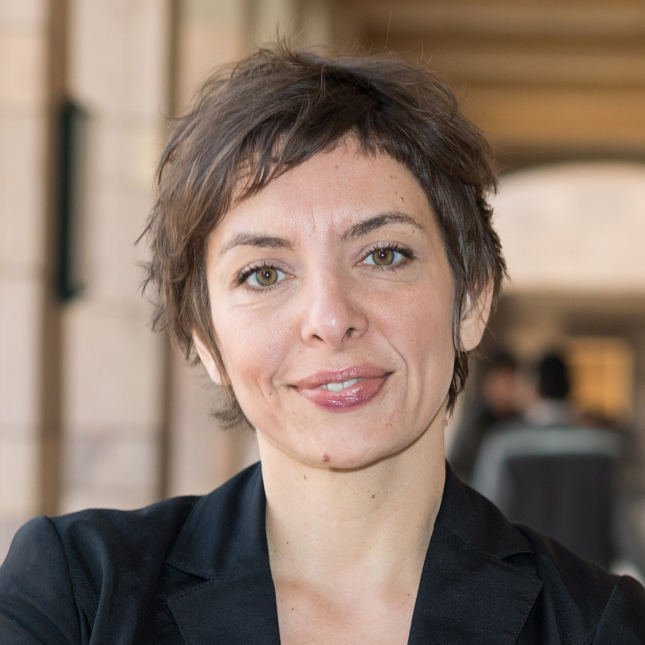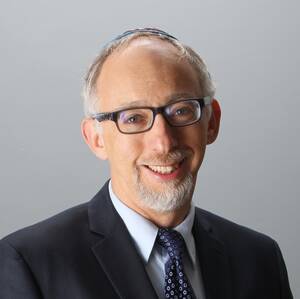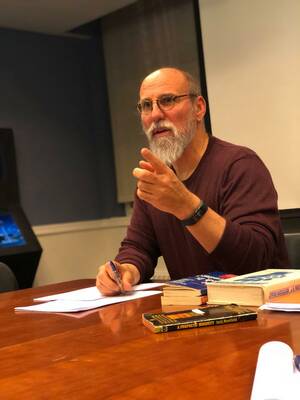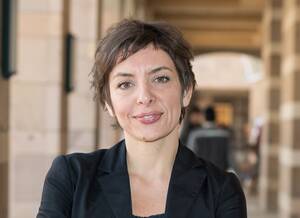Brave, Historic, and Long Overdue
A Palestinian professor weighs in on the JVP anti-Zionism statement.
This article is part of a roundtable on JVP's statement on Zionism. Click here to read the rest of the conversation.

JVP’S STATEMENT against Zionism is brave, historic, and long overdue. With care and rigor, these activists have invited both their own communities and the broader public to imagine a future where we are all free.
Why has this small place, Israel/Palestine, occupied such a large share of our global visions? In the deep crevices of this partitioned, scarred, and still beautiful land, lie the promises and failures of the idea of Europe. The brutal force of European nationalism racialized the Jewish body as its unassimilable other; antisemitism’s ubiquity in European ideologies, structures, and states culminated in the genocide of the Jewish people. Zionism was a response to white supremacy, an exit strategy from European racial practices.
But Zionism did not depart from the civilizational hierarchies it sought refuge from; it refashioned those hierarchies. My parents became exiles as a result of the Nakba in 1948. They did not have to wait until 1967 to understand that Zionism was a settler-colonial enterprise. They learned that lesson on their flesh. Since the late 19th century, Zionism’s most vexing problem has been how to build a Jewish state on a piece of land where the majority of the people were not Jewish. The answer to this dilemma was to erase the Palestinian as a named subject who could bear political rights. This became juridically explicit in 1917 when the Balfour Declaration inaugurated both the British colonization of Palestine and the British commitment to the Zionist enterprise. That declaration defined the Palestinians by what they were not: they were non-Jews who could enjoy social and religious rights—but not political ones. For the last 102 years, the Palestinian condition has been a struggle for those political rights, as individuals and as a collective, in the face of expanding settler-colonial erasure. To deny the dispossession and exile that is the ongoing Palestinian condition is to repeat and reify this process.
In 2019, white supremacy, settler-colonialism, and right-wing populism have triumphed. These triumphs leave no room for hesitation, whataboutism, and the tears of privilege. These triumphs render intersectional solidarity a matter not of choice but of survival. Antisemitism, Orientalism, anti-blackness, and Islamophobia are mutually constituted and linked phenomena. We did not need Donald Trump, Jair Bolsonaro, Narendra Modi, Benjamin Netanyahu, Abdel Fattah el-Sisi, or Mohammed bin Salman to deliver that lesson. But they did. And the ascendance of these men promise ever dire conditions, not least of all for the dispossessed Palestinian, whose brutalization has become a rite of passage for the prophets of the right-wing fraternity that currently govern our world.
It is in recognition of these dire conditions that Jewish Voice for Peace has bravely opposed Zionism. Today we must imagine social justice as justice for everyone. Such a justice requires opposition to all forms of racism in our political and intellectual work. There is no room for those old racialized representations of people and places as empty, terroristic, unworthy, not ready for self-rule, not ready for freedom. There is no room for the colonial logic that authorizes which lives are grievable. There is no room for that attempt to determine which Palestinian is worthy of which political rights—is the Palestinian refugee of 1948 less an exile than the Palestinian refugee of 1967? Some might call this question immoderate. But to quote Angel Davis in Freedom is a Constant Struggle: Ferguson, Palestine, and the Foundations of a Movement: “We cannot go on as usual. We cannot pivot the center. We cannot be moderate. We will have to be willing to stand up and say no with our combined spirits, our collective intellects, and our many bodies.” JVP, like Davis, understand that our only choice forward is collective liberation.
Sherene Seikaly is Associate Professor of History at UCSB, Editor of Arab Studies Journal, and Co-Editor of Jadaliyya zine.



